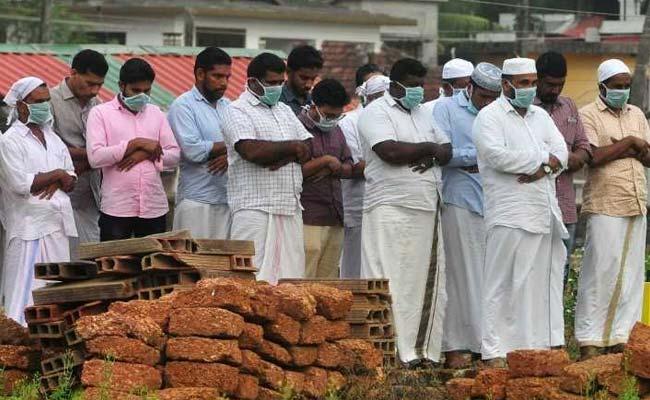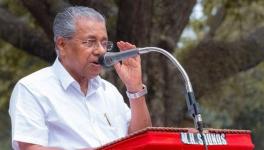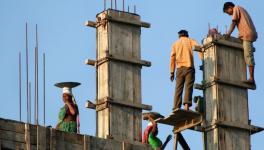Deconstructing a successful containment procedure : Kerala’s Nipah Virus Challenge

Image Courtesy: NDTV
The outbreak of a viral disease almost always creates extreme panic and leads to drastic measures being taken by individuals and the society at large. However, the nature of state response is a key factor in determining how quickly such extreme sentiments are contained. The developments in the aftermath of the outbreak of encephalitis caused by the Nipah virus in the Kozhikode district of Kerala is a case in point.
The first identification of the Nipah virus as the cause of an outbreak of encephalitis was reported in 2001 in the Meherpur district of Bangladesh. Since then, outbreaks of the disease due to the virus have been reported almost every year in certain districts in Bangladesh. A total of 209 human cases of Nipah virus infections in Bangladesh were reported out of which 161 deaths were reported (77% mortality rate), according to the WHO.
The high mortality characteristic of the Nipah virus was manifested in India too during outbreaks in West Bengal in 2001 and 2007. Of the 71 infected persons, nearly 50 died. The WHO says the infections are seasonal with most outbreaks taking place from December to May, which is the breeding season for bats, the main carriers of the virus to human beings.
In Kerala, the first person to be affected was reportedly Sabith, a resident of Kozhikode. He died on May 5th. 12 days later, his brother Salih aslo died. The virus has to date claimed the lives of 17 people in the Kozhikode region.
Given the nature of the virus, it seemed like a massive epidemic was in the offing. However, such a public health disaster was successfully averted due to the quick response of the medical department and the government of Kerala. Two people are under treatment.
Despite the virus not being common in the area, the diagnosis happened by the second infection itself. Normally, viruses which aren’t endemic to a region take a lot of time to be diagnosed through sample testing. The Manipal Centre for Virus Research (MCVR) confirmed it was Nipah on testing and the results were shared with the health department in Kerala. Upon knowing this, a team sprung into action to contain the virus from spreading to other areas. The process necessitates quarantine of a person who is confirmed to be infected. Nipah spreads through a ‘stuttering chain of transmission’, meaning that after the virus passes from bats to humans, the people affected will be the ones in close contact with the patient, such as family members, hospital staff, and other caregivers. The 16 people who died after the first victim had all been in contact with him.
Newsclick spoke with Dr K P Aravindan, the former president of Kerala Sasthra Sahitya Parishad (KSSP, Kerala’s premier Science forum) and also a retired professor of Pathology about the methods employed by the health department to prevent an epidemic.
Dr Aravindan explained that the quick diagnosis ensured that the death toll did not rise exponentially. He said the proper functioning of the medical institutions of the state helped effectively contain the virus from spreading further.
“Around 2,000 people who were in direct or indirect contact with any of the 19 people are being kept under observation and monitored closely by the medical authorities. They are regularly contacted by phone and asked about their daily well-being, and whether they are experiencing any of the symptoms of a infection, such as high fever, severe headaches and seizures. In case they respond that they have any such symptom, an ambulance is sent to their house to escort them to the hospital. They are kept in isolation and examined with care until they test either positive or negative for the virus”, says Dr Aravindan. The Chief Minister of Kerala, Pinarayi Vijayan directed the Kozhikode and Malappuram district Collectors to deliver free kits of rice and other essential food items to the homes of those under observation.
There has also been an extensive public advertisement campaign in and around Kozhikode to inform the residents of the disease, its symptoms and do’s and don’ts. After a meeting chaired by the Chief Minister and attended by DGP Loknath Behara, medical experts, IAS officers and the collectors of Kozhikode and Malappuram, the government declared that the situation was under control as no new cases had been reported. As a precautionary measure, schools and colleges in Kozikode will remain closed until June 12 and all examinations in the district have been postponed.
An antibody known as the Human Monoclonal Antibody (M 102.4) has been bought by the state from Australia to attempt and neutralize the virus if further cases occur. The antibody was developed to combat the Hendra virus, which infected people in Queensland, Australia in 1994, and is also transferred by fruit bats to horses and then to humans.
Dr Aravindran praised the health workers in the district for being meticulous in their job and tirelessly working in order to contain the virus. However, he was very critical of at a lot of media outlets for churning out politically motivated comments about the containment procedure. For instance, during a debate programme on Manorama News, the anchor started off by comparing Kerala to regions in Africa where outbreaks of rare diseases happen, and aggressively went on to question why the Nipah infection was not confirmed after the first death. Dr. Aravindan noted that such practices were irresponsible and stemmed from lack of awareness of medicine. He termed it politically motivated journalism that caused unnecessary panic in the State for a while after the outbreak. He also dismissed rabble-rousing by right-wing hardliners that the large migrant population of the State was the reason for the outbreak.
A final confirmation that the virus has been effectively contained fully and is no more a threat would be issued within a week, said Dr Aravindan. Expert groups from the Indian Council for Medical Research and National Institute of Epidemology continue to be stationed in Kozhikode to try and ascertain how the virus entered the state.
The lessons of the incident are simple: a fully functioning public health department is a major requirement for a speedy and efficient containment of any virus outbreak before it becomes an epidemic. Experts have noted that the reason for the frequent outbreaks of viral diseases in several African countries is the extensive privatization of the health system that puts profits before the welfare of the people.
Kerala ranks number one in the Niti Aayog’s ‘Performance in the overall Health Index’ among 21 big States based on neonatal mortality rates, under-five mortality rate, full immunisation coverage and institutional deliveries. The State continues to provide examples of how a welfare-centred government that puts people before profits and corporations is a vital necessity in the country today.
Get the latest reports & analysis with people's perspective on Protests, movements & deep analytical videos, discussions of the current affairs in your Telegram app. Subscribe to NewsClick's Telegram channel & get Real-Time updates on stories, as they get published on our website.
























